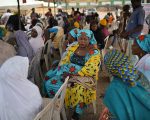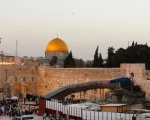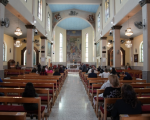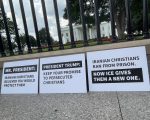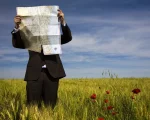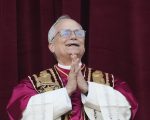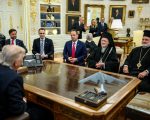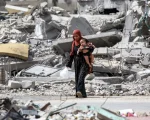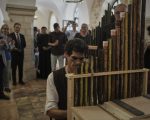A US Senator Claims ‘Christian Mass Murder’ Is Occurring in Nigeria. The Data Disagrees
U.S. Sen. Ted Cruz has been trying to rally fellow evangelical Christians and urge Congress to designate Nigeria as a violator of religious freedom with unfounded claims.
This Is Why the Story of Abraham Is Coming Up in the Push for Middle East Peace
Anyone trying to build a bridge between faiths is liable to invoke Abraham — revered as a founding figure in Christianity, Islam, and Judaism — as someone they hold in common.
The West Bank’s Dwindling Palestinian Christian Communities Continue to Struggle Amid Violence
Proudly Palestinian, Taybeh’s Christians struggle with the threats of violence from Jewish settlers and the intensifying restrictions on movement imposed by Israel. Many also say they fear Islamist radicalization will grow in the area as conflicts escalate across the region.
Deportation Flight to Iran Included Christians at Risk
The Trump administration’s deportation of more than a hundred Iranians held in ICE custody includes Christian converts and other religious minorities who may face harsh penalties for their religious beliefs upon return.
The Danger of Doing Theology by Cartography
This issue of A Public Witness flips to the maps section of the Bible to see who should really control the ‘biblical heartland.’
Pope Leo XIV Enters US Political Fray, Challenging ‘Inhuman Treatment of Immigrants’
The first American pope weighed in on a controversy roiling the Chicago diocese, telling journalists the Catholic Church’s political positions include more than opposing abortion.
A Doomsday Prediction About the Rapture Is Spreading on TikTok
The Rapture is near — at least according to a viral apocalyptic prophecy by one South African man. Here’s a look at the theological concept of the Rapture and its role in history.
Orthodox Patriarch Defends Recognition of an Independent Ukrainian Church
Ecumenical Patriarch Bartholomew of Constantinople has long been critical of the Russian Orthodox Church and its support for the full-scale Russian invasion of Ukraine in 2022.
Priceless Archaeological Artifacts in Gaza Saved in Frantic Rescue
‘It’s not just about Palestinian heritage or Christian heritage, it’s something important to the world heritage here, protected by UNESCO,’ explained Kevin Charbel, the emergency field coordinator for Première Urgence Internationale.
The Oldest Pipe Organ in the Christian World Sounds After 800 Years of Silence
Composed of original pipes from the 11th century, the instrument emitted a full, hearty sound as musician David Catalunya played a liturgical chant.

